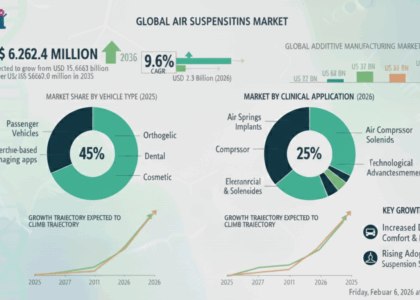
Introduction: A New Chapter for Fuel Injection Systems
Fuel injection systems have long served as the cornerstone of combustion engine performance, responsible for optimizing air-fuel mixture ratios and boosting energy efficiency. Historically, their development was driven by the need to enhance fuel economy and reduce emissions in gasoline and diesel engines. However, a new wave of innovation is reshaping their purpose. As global environmental mandates tighten and the automotive sector seeks practical pathways to decarbonization, modern fuel injection systems are increasingly being called upon to support alternative fuels such as hydrogen, ethanol, methanol, and biodiesel. These emerging fuels, often discussed in isolation from internal combustion engines, are gaining traction as feasible solutions when paired with advanced injection technologies.
Reinventing the Internal Combustion Engine
The conventional narrative suggests that internal combustion engines (ICEs) are on a slow decline, displaced by electric powertrains. Yet, this outlook overlooks the ongoing reinvention of ICEs. Fuel injection systems are at the heart of this transformation. Through precise fuel delivery and combustion management, these systems now allow engines to burn a wider variety of cleaner, renewable fuels. Ethanol-blended fuels, commonly used in flex-fuel vehicles in countries like Brazil, are enabled by adaptive fuel injection strategies that accommodate the varying energy content of the fuels. Methanol, gaining interest in markets like China, is also being used in ICEs with specially calibrated injectors. In each case, the goal is not just compatibility, but optimization. With minimal changes to engine design, OEMs can leverage fuel injection technologies to reduce lifecycle carbon emissions significantly while retaining the reliability and infrastructure advantages of ICEs.
Get Ahead with Our Report: Request Your Sample Now!
https://www.futuremarketinsights.com/report-sample#5245502d47422d353536
Technology Innovations Enabling Fuel Flexibility
Recent advancements in fuel injection system trends are pivotal in expanding fuel flexibility. Electronic fuel injection advancements, including real-time adaptive mapping and high-precision injectors, enable engines to modulate injection timing and volume based on the type and quality of fuel. In hydrogen internal combustion engines, for instance, specialized direct injection systems are engineered to counter hydrogen’s high autoignition temperature and low energy density. These innovations help reduce the risk of pre-ignition and improve thermal efficiency. Biodiesel applications also benefit from modifications in nozzle design and material selection, addressing viscosity differences and potential corrosion. Furthermore, low-voltage smart control systems embedded within these fuel injection units enable seamless transitions between fuel types, making multi-fuel engine technologies more viable than ever before.
Industry Examples and Experimental Use Cases
The shift toward fuel injection in alternative fuel vehicles is already underway in various pilot and commercial projects. Toyota, for example, has developed hydrogen-powered ICE prototypes using direct injection systems that offer a cleaner burn with zero carbon dioxide emissions. Cummins has also unveiled a hydrogen internal combustion engine concept featuring custom high-pressure injectors to handle the fuel’s specific combustion profile. In Brazil, where ethanol has long played a major role in transportation, fuel injection systems in flex-fuel engines are designed to dynamically adjust based on ethanol-gasoline mixtures. These adaptations have allowed widespread ethanol adoption without requiring separate engine platforms. Meanwhile, in China, growing interest in methanol as an alternative fuel has prompted several OEMs to develop ICE vehicles with injection systems capable of handling methanol’s corrosive nature and low volatility. These cases illustrate how the future of internal combustion engines could be far more sustainable than previously imagined, provided that injection technology continues to evolve.
Challenges and Road Ahead
Despite the promising advancements, several challenges remain. Injector material compatibility is one of the primary technical hurdles, especially with corrosive or moisture-absorbing fuels like methanol and ethanol. The development of advanced alloys and coatings is underway to address this issue. Combustion calibration is another area requiring fine-tuned algorithms to ensure optimal performance and emissions across multiple fuel types. Moreover, market adoption is hampered by fragmented fuel distribution infrastructure and limited consumer awareness. Still, OEMs and Tier 1 suppliers are investing heavily in overcoming these barriers, often in collaboration with fuel producers and policymakers. The ongoing integration of digital control systems and AI in engine management is also expected to streamline fuel adaptability and efficiency, bringing multi-fuel engines closer to mass-market viability.
Conclusion: Fuel Injection Systems as Enablers of Cleaner Combustion
The evolution of fuel injection systems reflects a broader shift in the automotive industry’s mindset. Instead of viewing ICEs and alternative fuels as opposing forces, forward-looking OEMs are exploring how both can coexist and contribute to sustainable mobility. By enabling internal combustion engines to operate efficiently on a diverse array of cleaner fuels, advanced fuel injection technologies are extending the relevance of ICEs in a decarbonizing world. They are not merely improving efficiency; they are transforming engines into platforms for innovation and sustainability. In doing so, they support the transition toward a more flexible and cleaner automotive landscape where the choice of fuel becomes as strategic as the design of the vehicle itself. This convergence of traditional engine design with future-ready fuel strategies positions fuel injection systems as silent yet powerful drivers of the low-carbon revolution.





